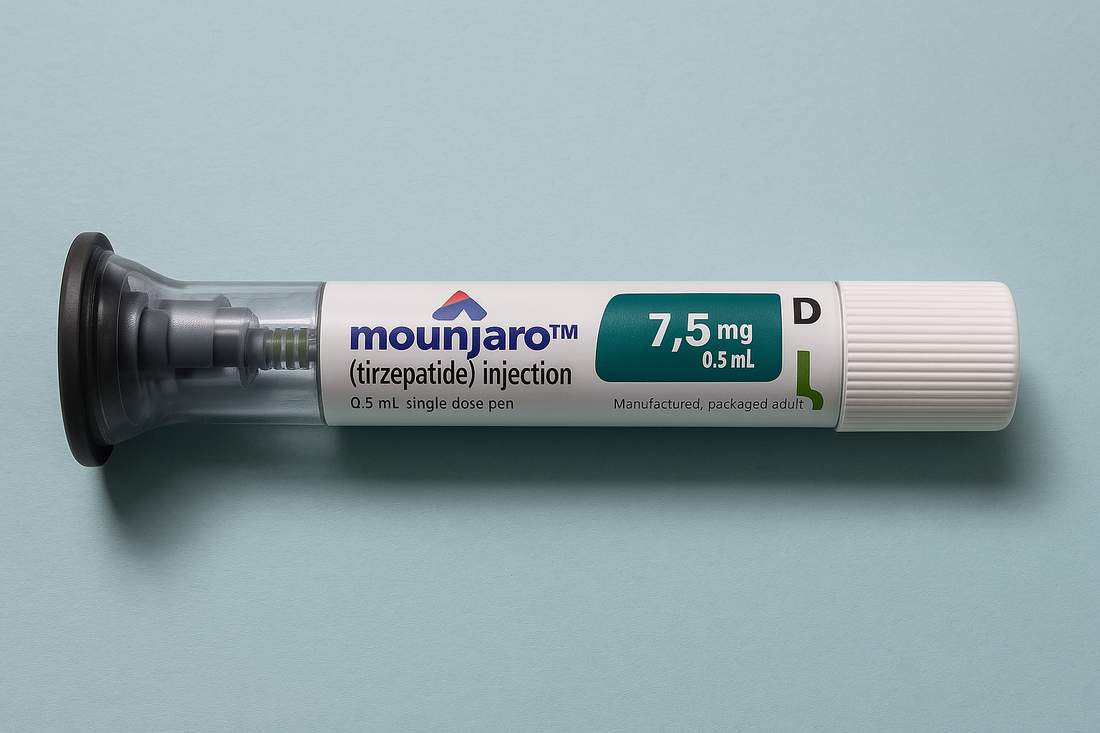
Heart Health Benefits of Tirzepatide for People with Diabetes
Share
Living with type 2 diabetes can significantly increase the risk of heart disease, especially in people who are overweight or have a history of heart problems. Managing blood sugar is important, but newer medications may offer additional benefits—especially for the heart. One such medication is tirzepatide. But how does it compare with the older class of drugs called GLP-1 receptor agonists (GLP-1RAs)? A recent large study provides some answers.
What Was the Study About?
Researchers looked at adults over 40 who had type 2 diabetes, were overweight (BMI ≥25), and had a history of heart disease. They wanted to see whether people treated with tirzepatide had better heart-related outcomes compared to those using GLP-1RAs like semaglutide or liraglutide.
This was a real-world study, meaning it used health data from hospitals and clinics—not a clinical trial. Both groups were carefully matched so the comparison would be fair.
Key Findings: Tirzepatide May Lower Risk of Heart Problems
The study showed that people taking tirzepatide had:
- 40% lower risk of serious heart events like heart attack, stroke, or death from any cause
- 42% lower risk of heart attack
- 44% lower risk of death from any cause
- Fewer hospital visits for heart failure
- Lower chance of developing new atrial fibrillation (irregular heart rhythm)
- Lower chance of developing acute kidney injury
While the number of strokes was slightly lower in the tirzepatide group, this difference was not statistically significant.
Better Blood Sugar and Cholesterol Control
Tirzepatide also helped more people reach healthy targets for:
- Blood sugar (HbA1c): More patients achieved levels below 7%
- Bad cholesterol (LDL): More patients got LDL below 70 mg/dL
- Triglycerides: More patients kept levels below 150 mg/dL
- Kidney health: Improvements were seen in albumin:creatinine ratios, a marker of kidney damage
How Safe Is Tirzepatide?
Tirzepatide was generally safe. In fact, it caused fewer gastrointestinal side effects (like nausea or vomiting), fewer cases of palpitations, and fewer respiratory infections (like pneumonia or flu) compared to GLP-1RAs. Other side effects like gallbladder problems or diabetic eye disease were similar between the two groups.
What This Means for Patients
If you have type 2 diabetes, are overweight, and have had heart disease, tirzepatide might offer added protection—not just for your blood sugar, but for your heart and kidneys as well. It could mean fewer hospital visits, lower risk of heart attacks, and possibly a longer life.
A Word of Caution
This study was based on real-world health records, not a controlled clinical trial. That means some unknown factors could have affected the results. But it still provides strong evidence supporting tirzepatide’s benefits.
We are still waiting for the results of a large trial (called SURPASS-CVOT) that is directly testing tirzepatide against GLP-1RAs for heart health. Until then, these findings give doctors and patients useful information to consider when choosing diabetes treatments.
Final Thoughts
Managing type 2 diabetes is about more than just lowering blood sugar. Medications like tirzepatide that also protect the heart and kidneys could play an important role in keeping patients healthier, longer. If you're managing diabetes and have a history of heart issues, it may be worth discussing tirzepatide with your healthcare provider.
